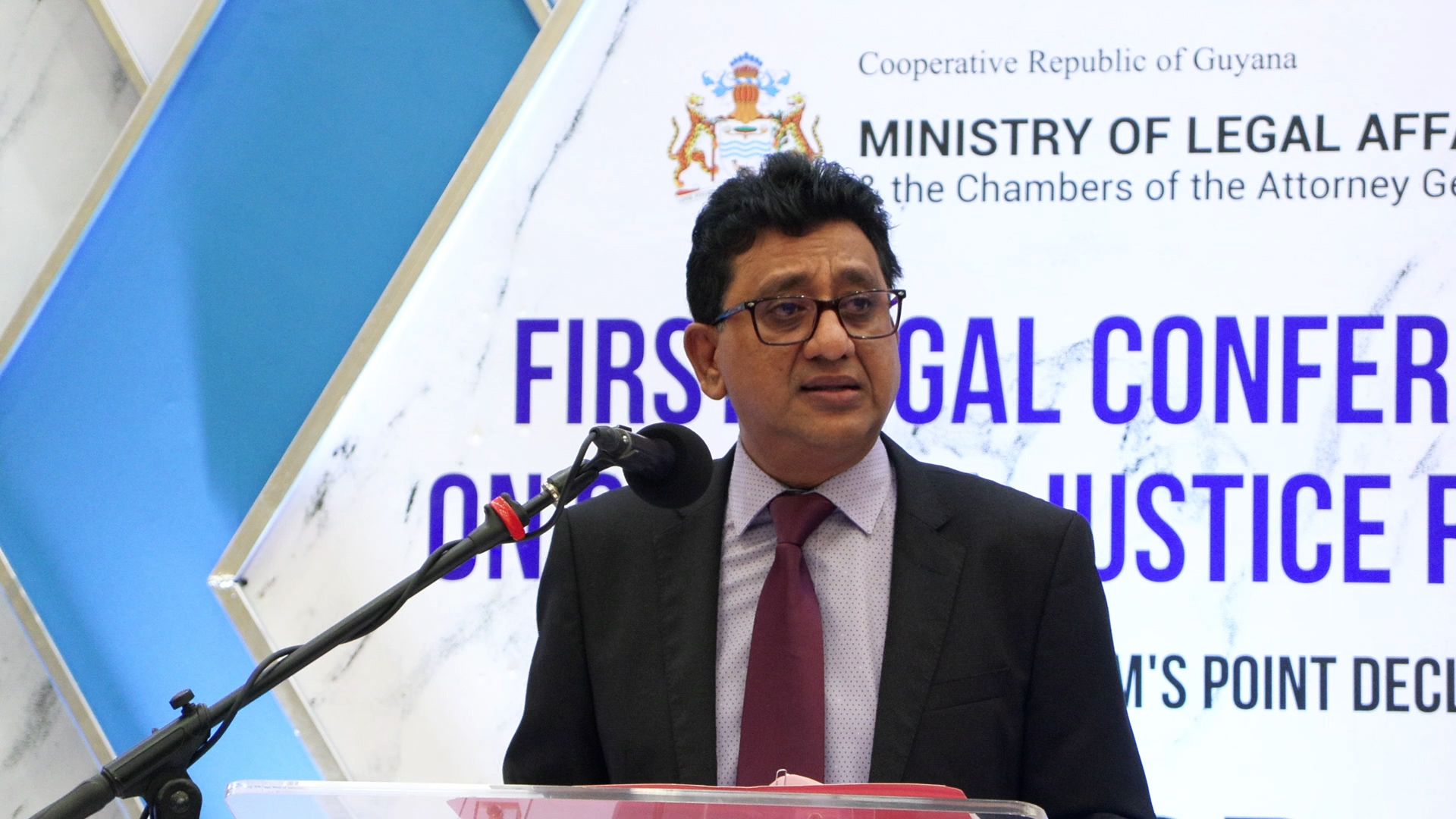
A decision by Acting Chief Magistrate Faith McGusty to allow Adonika Aulder, the pregnant wife of Assistant Police Commissioner Calvin Brutus, to leave the country for emergency medical treatment has ignited a legal dispute.
The ruling, made last Thursday in the Georgetown Magistrates’ Court, is being challenged by Attorney General Anil Nandlall, who argues that the magistrate exceeded her legal authority in granting the request.
Aulder and her husband are currently facing serious criminal charges.
According to Nandlall, a magistrate has no legal right to allow a defendant, who is released on bail or remanded, to leave the country.
During his Tuesday night commentary, Nandlall asserted that once a person is granted bail, they remain in the custody of the court, either through direct custody or by a surety.
He stressed that the only court with the authority to permit a defendant to leave the jurisdiction is the High Court, citing Guyana’s Constitution, which grants citizens freedom of movement.
“Only in exceptional cases, when a person is not on bail or remand and is free to go, can they be permitted to leave the country,” Nandlall explained.
“In this instance, the High Court had already ruled against granting permission for travel, making the magistrate’s decision problematic.”
The Attorney General further argued that the magistrate should have followed the High Court’s previous ruling on the matter, referencing the legal doctrine of stare decisis, which requires lower courts to adhere to the decisions of higher courts.
“The magistrate should not have entertained this application at all. She had no power to grant it, and even if she did, she should have followed the High Court’s decision,” Nandlall said.
“This ruling is in direct conflict with established legal principles, and it sets a dangerous precedent.”











